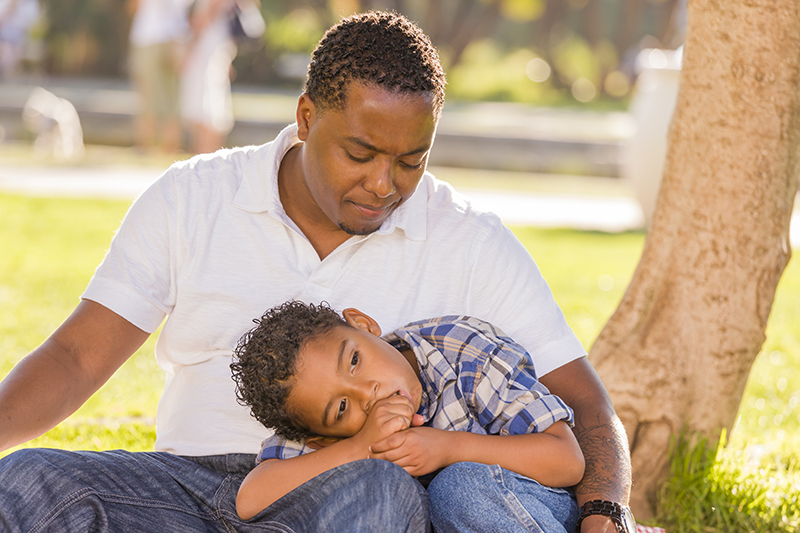What's the difference between legal and physical custody?
Parties with legal custody (decision-making authority) make long-term decisions about education, health, religion, care, welfare and other important areas. Physical custody (child access/visitation) refers to where children live and how much time they spend with each parent. Watch a video on important terms in a custody case.
How do I open a new child custody case?
Complete a Complaint for Custody (CC-DR-004) to ask to the court to grant you custody. File the form in the Circuit Court where the child lives or where either parent lives. Make enough copies for the other parent and keep at least one copy for yourself. Watch a video on how to file a custody case.
Is there a fee?
The person filing the initial Complaint must pay a court filing fee. Custody is a civil action in which a clerk collects $165. See the fee schedule. If you can’t afford it, ask the court to waive the fee by submitting completed fee waiver forms with your Complaint. Watch a video on waiving court filing fees.
What if my child lives out of state?
In this case, there are special rules about where to file. You may want to contact a lawyer.
What is service of process?
The person filing the initial Complaint must provide copies to the other party or parties. You may not provide copies yourself; someone must do it on your behalf. Do NOT overlook this important step. Watch a video on service of process.
I’ve been served with a Complaint for Custody. What do I do now?
Use form CC-DR-050 to file your Answer. Check the boxes to “admit” or “deny” statements in the Complaint. You may also file a Counter-Complaint for Custody (CC-DR-095) with your Answer if the custody order you want is significantly different than what the other party has requested. Mail to the other party copies of everything you file with the court.
Is there a deadline for answering a Complaint?
If you live in Maryland, you have 30 days to respond. If you live in another state, you have 60 days. If you live outside the U.S., you have 90 days.
What happens if the deadline passes with no Answer filed?
The person who filed the initial Complaint may ask for a finding of default. See the Request for Order of Default (CC-DR-054). If the court is convinced that service of process was proper, it will issue an Order of Default. That permits the custody case to be heard and concluded without the participation of the other party.
Our documents are filed. What happens next?
The first court event is often a scheduling conference with a judge or magistrate where all parties talk about programs that may help you reach a settlement. The court will also schedule hearings, set deadlines, and provide you with information on creating a parenting plan. Learn about Parenting Plans. Another common court event is the pre-trial settlement conference, where the court will identify the issues on which you and the other party cannot agree. Those are the issues that the court will decide at trial.
Do I need a parenting plan?
Yes. The court requires a parenting plan in any case involving custody of a minor child. Learn more at mdcourts.gov/parentingplans.
Tell me more about court programs that may help us reach a settlement.
Every county has a family services coordinator who knows about programs available in your jurisdiction. Find that person in your area. Court programs include co-parenting classes, mediation, custody evaluations, child access or visitation services, and more. Watch a video on legal proceedings in a custody case.
We cannot reach an agreement. What happens at a custody trial?
Custody trials are in front of a magistrate or judge, never in front of a jury. Contested trials are complicated. You may want to get a lawyer. The court may also need input from professionals before making its decision. On your trial date, each side will give an opening statement, take turns submitting evidence, and give a closing argument, which is a chance to tell the court what you want and why it should rule in your favor. If you disagree with the court’s decision, you have the right to ask for a review. Watch a video on custody trials.
Last updated: July 2020



